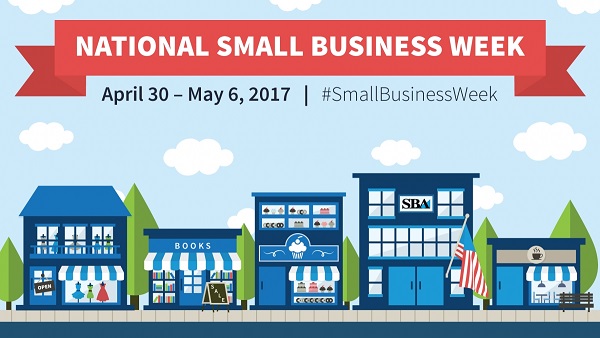
By Greg Petraetis
One would think not having a boss to report to day in and day out would make for a good night’s rest, but folks who own their own businesses have a lot to worry about. As someone who works with small businesses and owners daily, I’ve seen firsthand how shifting priorities are starting to compound the unique challenges they face.
Don’t get me wrong—the things that keep small business owners up at night today: finding good and qualified employees, keeping up with government regulations, increasing profit, to name just some—aren’t going anywhere. But new challenges are emerging.
Here are the four things that will keep small business owners up at night over the next 5 years.
1—Losing touch with your customers
Customer retention is everything. According to Bain & Company, a 5 percent increase in customer retention produces a more than 25 percent increase in profit. The pressure to retain customers will build as technology advances and increases competition by enabling entrepreneurs and new ideas.
That said, there are ways to engage and retain your customers. Think of some of the most successful unicorns today. Ryan Holiday offers two great examples in his book Growth Hacker Marketing. He first talks about Dropbox giving users 125MB of free data if they provide written feedback, which gets customers involved and participating (as well as allows Dropbox to tweak its service) and Spotify, which effectively used Facebook to engage existing customers while also promoting its services.
To reduce churn, you need to be agile and aware of your customers’ wants and needs. New technologies are emerging to help small business owners better understand their customers at an affordable price. It’s helping them quantify data and make smart business decisions. That said, you also need to constantly bring customers value. Such will be critical to building that loyal base that makes your business successful.
2—Developing the right culture and brand
For any business owner, developing the culture that you want to underlie and define your business is critical to success. In the next 5 years, the culture of your business and your brand’s reputation will be everything.
Consumers are expressing and displaying a growing affinity for the brands with which they identify. For instance, 50 percent of those aged 18 to 24 say a brand says “something about who I am, my values, and where I fit in.” That number is 36 percent for those aged 25 to 34. As such, businesses are becoming more conscious of social issues—not just because it’s the right thing to do, but because it’s good business.
More and more, the conscientious brand is becoming a very real thing that cannot be ignored. Whether it’s building a workplace that is diverse and inclusive, defining and executing on your mission of doing business responsibly, or building the culture that you want your business to reflect, building your business’s image will soon be a top priority versus a “nice to have”.
3—Cyberattacks
According to the National Federation of Independent Business, cybercrime ranks way down at number 51 out of 75 possible business concerns. Small business owners are more concerned about: controlling their own time, telephone costs and services, electricity costs, and estate tax. This, despite the fact that 60 percent of all targeted cyberattacks in 2014 struck a small- or medium-sized business.
Concern about cyberattacks will absolutely increase. Small business owners will increasingly begin to recognize that 60 percent of small businesses go out of business within six months of a data breach, according to the National Cyber Security Alliance, and it’s not cheap either. The average price tag for a small business to clean up after an attack is said to be around $690,000.
As business increasingly moves mobile, which has its own unique sets of security challenges, security concerns will only heighten. And as cybercrime becomes more sophisticated and continues to target small businesses, expect this to become a top priority in the coming years.
4—Finding qualified, tech-savvy employees
Finding good help has always been a top concern of small business owners. But what will change are the types of candidates business owners will be looking for.
There’s no doubt that technology is changing the workforce. The World Economic Forum’s Future of Jobs report predicts that 5 million jobs will be lost before 2020 due to technological advances that “replace the need for human workers.”
It’s clear that every company is now becoming a tech company. Just think about the fact that there are 1,000 apps submitted to Apple’s app store every day. Today, not building an app for your product or service would be at the peril of most businesses. That simply wasn’t the case 10 years ago.
So, what type of job candidates will small businesses be looking for in five years? In addition to those with skills in marketing, accounting or sales, they will be looking for those who are fluent in technology. Even for salespeople, technology is critical to success. If you’re not utilizing tools and resources like Big Data and social media to increase profits, you simply will not win. And that’s today—imagine what it will be like five years from now.
Greg Petraetis is Chief Operating Officer, Midmarket and Partner Ecosystem, for SAP North America, responsible for leading programs and partnerships to help small and medium-sized businesses (SMBs) grow and innovate.







